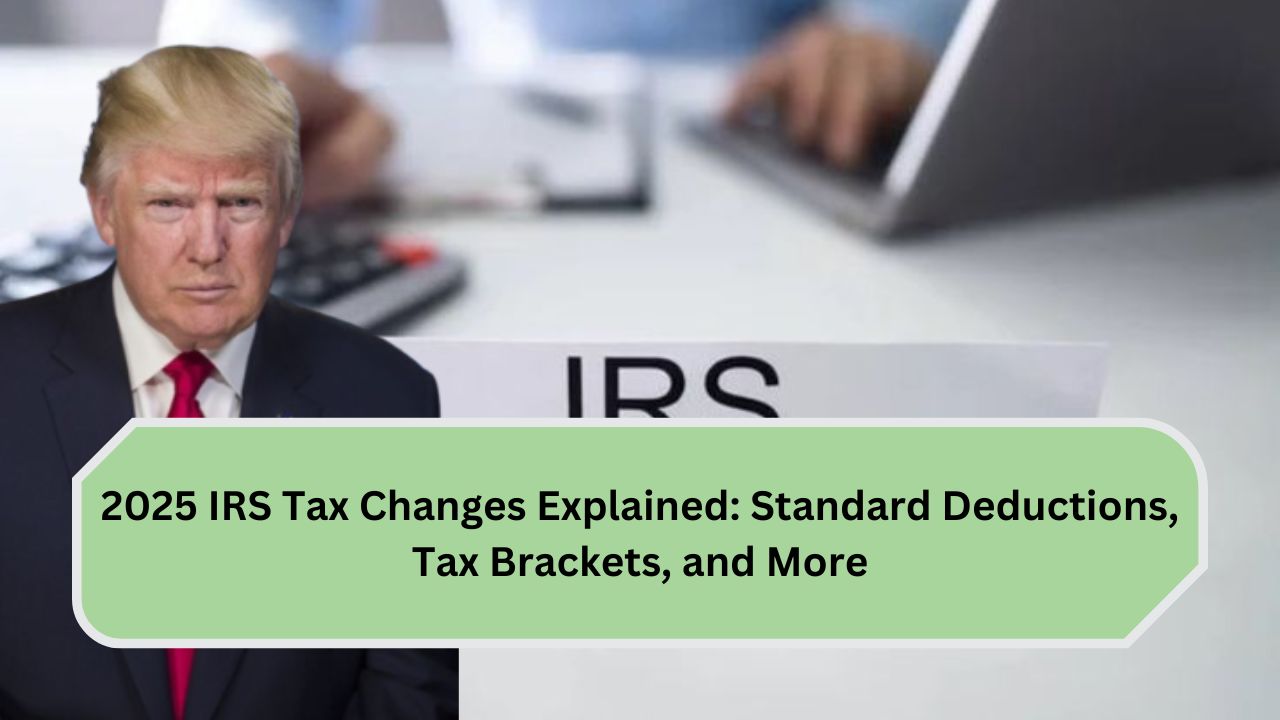The IRS (Internal Revenue Service) recently announced major tax changes 2025 IRS Tax that will affect millions of Americans. These changes aim to help people cope with inflation and reduce financial burdens. The updates include changes to deductions, tax brackets, health-related savings, and more. Let’s break down what these changes mean for you and how they could impact your finances.
1. Standard Deduction Increase
One of the biggest changes for 2025 is the increase in the standard deduction. The standard deduction is the amount of income that is not taxed, so an increase in this amount means more money in your pocket. For 2025, the standard deduction will be:
- $15,000 for single filers (up from $14,600 in 2024).
- $22,500 for heads of household (up from $22,300).
- $30,000 for married couples filing jointly (up from $29,200).
This increase will help reduce taxable income for many people, especially those who do not itemize their deductions. As a result, you may pay less in taxes and potentially receive a bigger refund.
2. Updated Tax Brackets
In addition to the increase in standard deductions, tax brackets have also been updated for 2025. Tax brackets determine how much tax you owe based on your income. The IRS adjusts these brackets to keep up with inflation. This year, the top tax rate of 37% will apply to:
- Single filers earning over $626,350 (up from $609,350 in 2024).
- Married couples filing jointly earning over $751,600 (up from $725,300).
These changes mean that many people could find themselves in a lower tax bracket, which may result in paying less tax overall.
3. Health Savings and Commuting Benefits
For those who contribute to Health Savings Accounts (HSAs) or Flexible Spending Accounts (FSAs), there are some beneficial changes in 2025. The IRS has raised the contribution limit for Health FSAs to $3,300, with a carryover maximum of $660. This increase helps you save more for medical expenses.
Commuters will also benefit from an increased monthly transportation and parking benefit, which will rise to $325. This increase will help you save money on work-related commuting costs.
4. Increased Earned Income Tax Credit (EITC)
The Earned Income Tax Credit (EITC) is a tax credit for low- to moderate-income families. For 2025, the maximum EITC for families with three or more children will increase to $8,046 (up from $7,840 in 2024). This boost helps families who need financial support as living costs continue to rise. If you qualify, this credit can provide a significant financial benefit.
5. Higher Estate Tax Exclusion
For individuals with significant assets, the estate tax exclusion has been increased for 2025. The estate tax exclusion is the amount of money that can be passed on to heirs without being taxed. In 2025, the estate tax exclusion will rise to $13.99 million, up from $13.61 million in 2024. This change will benefit high-net-worth individuals, allowing them to pass more of their wealth to their family members or charitable causes without paying estate taxes.
6. Foreign Earned Income Exclusion Increase
For U.S. citizens working abroad, the IRS has increased the foreign earned income exclusion for 2025. The new limit will be $130,000, up from $126,500. This means U.S. citizens living overseas will be able to exclude more of their income from U.S. taxes, which can help avoid double taxation.
Summary of 2025 IRS Tax Changes
| Tax Aspect | 2025 Amount | 2024 Amount | Increase | Impact on Taxpayers |
|---|---|---|---|---|
| Standard Deduction (Single) | $15,000 | $14,600 | +$400 | Lowers taxable income for most people |
| EITC (3+ Children) | $8,046 | $7,840 | +$206 | More support for low-income families |
| Health FSA Contribution | $3,300 | $3,050 | +$250 | More savings on medical expenses |
| Estate Tax Exclusion | $13.99 million | $13.61 million | +$380,000 | More wealth passed on without estate tax |
How These Changes Will Affect You
These tax changes are designed to provide financial relief to a wide range of taxpayers. Whether you’re an individual taxpayer, a family, or a business owner, these adjustments are meant to help ease financial stress. With higher standard deductions, updated tax brackets, and increased savings opportunities for healthcare and commuting, these changes can positively impact your wallet.
For those who qualify for the Earned Income Tax Credit or are planning to leave a legacy for their heirs, these updates will provide additional financial support. It’s important to review these changes with a tax professional to make the most of the updates and maximize your savings.
Conclusion
The IRS tax changes for 2025 offer substantial benefits to taxpayers, especially in the areas of standard deductions, tax brackets, and credits. These changes are aimed at addressing inflation and easing the financial burden many Americans face. By taking advantage of these new adjustments, you could reduce your tax bill, increase your refund, and keep more money in your pocket.
FAQ’S
1. What changes have been made to the Social Security payment schedule in November 2024?
In November 2024, the usual Social Security payment schedule has been adjusted. The payment that is normally made on the second Wednesday of the month has been moved to the third week of November.
2. Why is there a delay in Social Security payments for some retirees in November?
The delay is due to a shift in the payment schedule. Instead of receiving payments in the second week, retirees will now get their payments later, around the third Wednesday of the month.
3. How should retirees manage their finances during this delay?
Retirees should plan ahead and adjust their budgets to cover the gap between the usual payment date and the new, delayed payment date.

